Amid intensifying calls for UN reforms, does the 80-year-old organisation have an 'incurable birth defect'?
The United Nations faces mounting criticism, primarily over the way its Security Council works. But experts and former diplomats say incremental reforms could make the body work and preserve what many see as an indispensable institution.
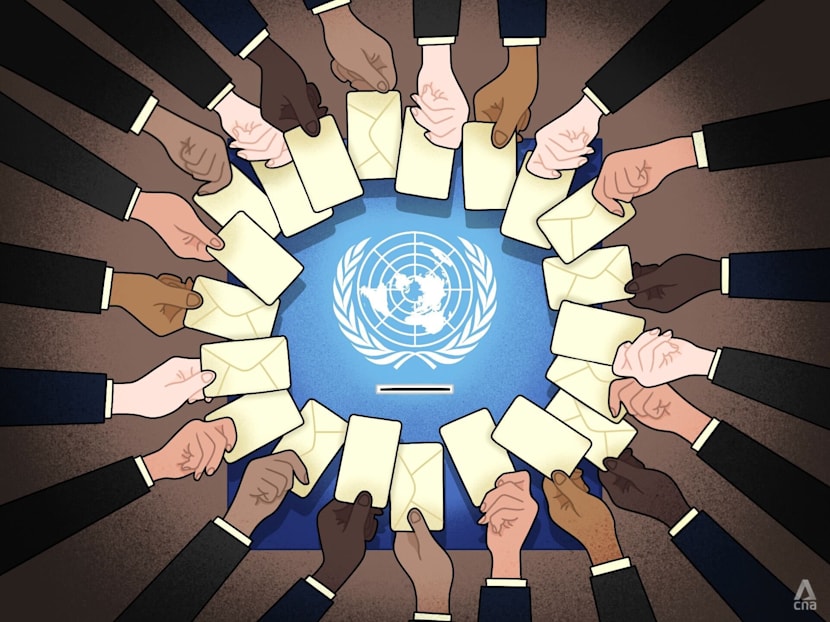
Experts and former diplomats said that the UN's declining effectiveness stem largely from its Security Council, and the five permanent members' increasing use of their veto powers to pursue national interests. (Illustration: CNA/Nurjannah Suhaimi)

This audio is generated by an AI tool.
At its latest General Assembly in New York, the United Nations (UN) came under sharp criticism, as world leaders questioned whether the institution – once seen as the cornerstone of global cooperation – has grown too outdated and divided to meet today's challenges.
United States President Donald Trump on Sep 23 accused the organisation of having tremendous potential but failing to live up to it.
"It's empty words, and empty words don't solve war. The only thing that solves war and wars is action," he said.
"All I got from the United Nations was an escalator that, on the way up, stopped right in the middle."
At September's assembly, other world leaders similarly took aim at the organisation.
India's Foreign Minister Subrahmanyam Jaishankar asked: "How has the UN lived up to expectations? And just look at the state of the world. Where has the UN actually made a difference?"
Meanwhile, Malaysia's Foreign Minister Mohamad Hasan demanded the Security Council be freed from its "humiliating paralysis", while Botswana President Duma Boko voiced frustration that African nations have for years been treated with "affable indifference" at the UN.
While less cutting, Singapore's Foreign Affairs Minister Vivian Balakrishnan urged the UN to rein in the growing use of veto powers by the Security Council's five permanent members and called for reforms to make the organisation more inclusive and representative.
While acknowledging that the multilateral system has enabled small states including Singapore to flourish, Dr Balakrishnan added: "We need a more representative and a more inclusive UN that reflects current realities."
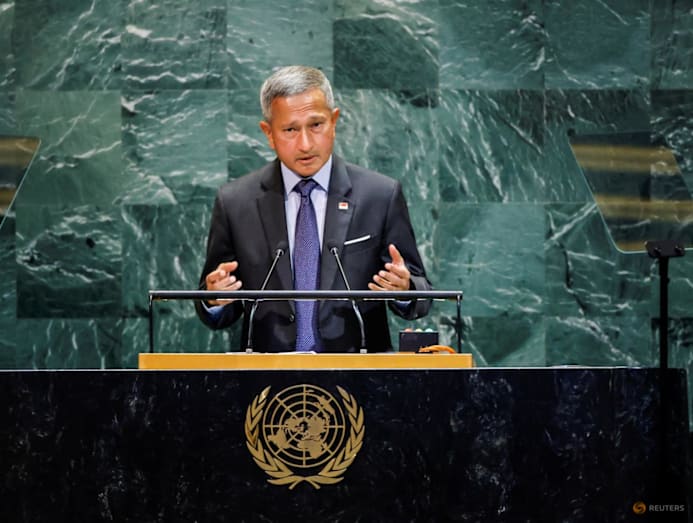
These pointed rebukes underscore global leaders' growing frustration with the UN's inability to effectively tackle major international crises, from climate change and Russia's invasion of Ukraine to the war in Gaza.
While criticisms of the UN's sprawling bureaucracy and inefficiency are longstanding, the tone at this year's assembly was notably harsher, driven in part by heightened perceptions that the Security Council – the institution's most prominent and powerful organ – no longer reflects today's geopolitical realities.
The UN Security Council comprises five permanent members – China, France, Russia, the United Kingdom and the US – and 10 non-permanent members elected for two-year terms.
Each of the 15 Council members has one vote, but the Permanent Five (P5) nations exclusively hold veto power. This allows any one of them to block substantive resolutions, even if all other members vote in its favour.
Rising isolationist and nationalist sentiments among the P5 have often led to frequent vetoes and deadlocks on critical issues.
In June, the US vetoed a resolution for a permanent ceasefire in Gaza despite unanimous support from the Council's other 14 members.
Similarly, Russia and China in March 2024 vetoed an immediate ceasefire resolution in Gaza, despite widespread backing from other Council members.
These episodes underscore a familiar pattern in which nations turn to the UN for help in times of crisis, only to see efforts stall or resolutions fall short.
WHAT'S AILING THE UN?
Experts and former diplomats CNA TODAY spoke to were nearly unanimous that the widespread decline in perceptions of the UN's reputation and effectiveness stems largely from its Security Council, and how the P5 increasingly use their veto powers to pursue their own national interests.
While the UN has six principal organs – the General Assembly, Security Council, Economic and Social Council, Trusteeship Council, International Court of Justice, and the UN Secretariat – the Security Council wields the greatest authority.
It leads in identifying acts of aggression, pushing for peaceful resolutions and recommending settlement terms, with all other UN member states obligated to comply with its decisions.
Dr Ilango Karuppannan, who was formerly Malaysian High Commissioner to Singapore and Deputy Chief of Mission in Washington DC, observed that the veto power has become "a symbol of paralysis".
Since 1945, it has been used nearly 300 times – often to block action on the Middle East, he noted.
"This selective use has created a sense that the UN is neither impartial nor fair."
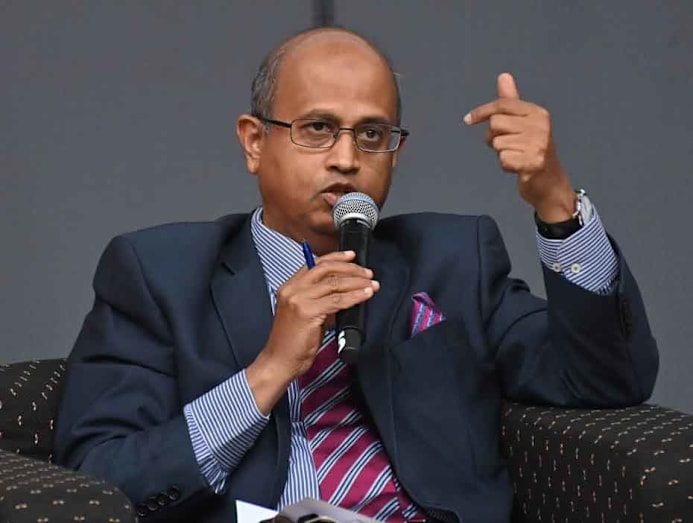
He added that powerful states have ignored UN norms when it does not suit them.
"The Iraq war in 2003 and the intervention in Libya in 2011 are clear examples. Both were carried out without full Security Council consensus," said Dr Karuppannan, who is currently an adjunct senior fellow at the S. Rajaratnam School of International Studies (RSIS) in Singapore.
"When the most powerful countries show they can bypass the UN whenever convenient, it undermines the organisation's authority and makes others question its relevance."
A "BIRTH DEFECT" BY DESIGN
While experts recognise that the P5's veto power has proven far from ideal in recent times, they note that without it, countries such as the US and China would otherwise have little reason to join or stay engaged in the UN.
This compromise was baked into the UN's structure when it was founded in 1945 post-World War II.
The aim was to keep major powers at the table following the failure of the UN's predecessor, the League of Nations, which collapsed partly because the US lacked a veto and therefore saw little consequence in walking away.
Ambassador-at-large Tommy Koh described the veto as a "birth defect which cannot be cured".
"There's no point criticising the Security Council for using the veto power," said Prof Koh.
"It's in the Charter. It was the price we had to pay to have the UN at all."
"The five permanent members will never give up their seats, and they will never give up their veto power," he added.
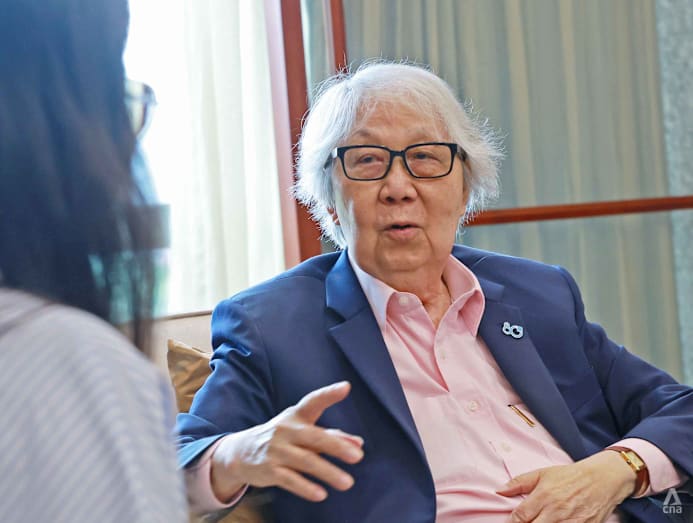
Former Singapore diplomat and permanent secretary of foreign affairs Bilahari Kausikan agreed, calling the UN "dysfunctional by design".
"The veto means that the UN is powerless whenever the interests of one of the P5 are involved," he said.
Today, this means that only the Security Council's resolutions are legally binding, while those passed by the General Assembly are mostly "performative", akin to mere "exhortations or aspirations", he added.
"Think of the veto as a fuse-box that trips whenever the system is threatened with an overload because the interests of the UN organisation conflict with the interests of one or more of the major powers.
"This prevents action on a particular issue but saves the system – a temporary blackout when the fuse-box trips, but not an electrical fire from a system overload that burns the house down."
DELAYED CONTRIBUTIONS, INTERFERENCE WITH KEY APPOINTMENTS
Veto powers aside, experts highlighted other ways member states weaken the UN's efficacy, including delaying financial contributions and interfering in key appointments.
RSIS' Dr Karuppannan highlighted that the UN's regular budget is "very modest" at about US$3.7 billion for 2025 – less than what the New York Police Department in the US spends in a year.
"Even that relatively small budget is often delayed or withheld," he said.
He noted that by late 2023, member states owed more than US$1.3 billion in unpaid contributions. The US alone was responsible for nearly 60 per cent of those arrears.
"When major powers delay or withhold funding, the UN is directly weakened. Its humanitarian agencies cannot deliver food, its peacekeepers cannot be deployed effectively and its development programmes grind to a halt."
Dr Jesus Domingo, Consul General at the Philippine Consulate General in Melbourne and former Philippine Ambassador to New Zealand, emphasised that the UN is "not a world government".
"It can only operate as far as its member states allow it to, and with the resources that member states allocate to it," he said.
Professor Kishore Mahbubani, Singapore's former permanent secretary for foreign affairs, compared it to a government trying to run a nation when its citizens neglect to pay taxes.
Former diplomats also pointed out the irony in the sharpest criticisms of the UN coming from countries that have fallen short on their own commitments.
The US, for instance, owes about US$1.5 billion in unpaid dues to the UN for its regular budget, while China has US$192 million in unpaid contributions as of October.
The US is also withdrawing from some of the obligations it has to the UN, noted retired Malaysian ambassador Mariappan Santhananaban.
This week, the UN announced it would be forced to reduce its peacekeeping forces worldwide by around 25 per cent due to a lack of funding, largely linked to US aid cuts.
"If the United Nations is failing, it is failing partly because of… the lack of commitment of the United States with regard to the functions of the United Nations," said Mr Santhananaban.
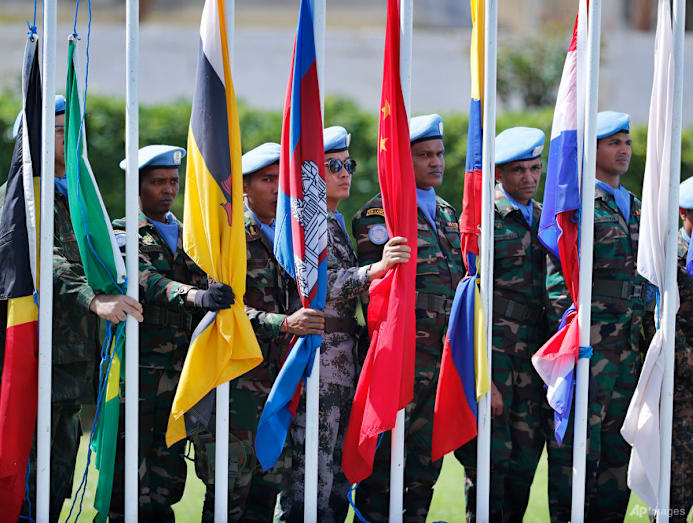
Experts also noted that politics often trumps merit in UN appointments, leading to inefficiency and underperformance.
Prof Koh said that many in the Secretariat are recruited not on merit, but due to political influence.
"Very often, powerful countries say, 'Can you please employ my candidate, she's a very good person.' And because of political pressure, the UN says, 'Okay, I'll give her a job.'
"And sometimes, the UN wants to get rid of somebody who's not performing, but the government protects them.
"This is one of the realities of international politics," he added. "It's part of the imperfection of the world we live in."
Prof Mahbubani compared the UN to an underperforming company where the board has chosen a weak chief executive officer.
"If the board picks a dynamic, strong, effective CEO, the organisation will thrive. If the board picks a spineless CEO, the organisation will suffer.
"And the P5 have basically decided to pick a weak, spineless CEO," said Prof Mahbubani.
"Under Kofi Annan, the UN improved, because (he was) an effective Secretary-General. But unfortunately, the current Secretary-General is not respected."
Former Thailand Foreign Affairs Minister Kasit Piromya agreed, describing Secretary-General Antonio Guterres as "hopeless" and "too weak", with "too much words, not much action". In his estimation, Mr Guterres is "afraid" to stand his ground vis-a-vis the Security Council.
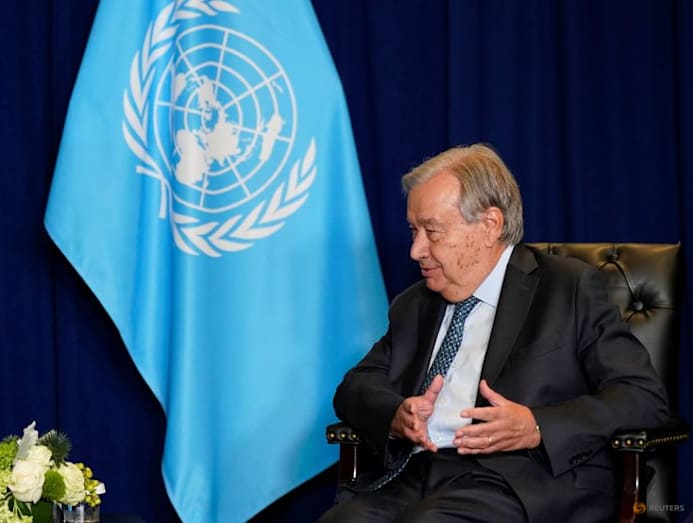
REFORMING THE UN
How then can an organisation so many see as increasingly weak and ineffective be revitalised?
One key proposal from diplomats and analysts: restructure the Security Council, so it better reflects today's geopolitical realities and balance of power.
Dr Karuppannan said the current framework of five permanent members holding veto power "still reflects the world of 1945, not the multipolar world of 2025".
"The global balance of power has shifted, but the Council has not kept pace. Africa, Latin America and Asia together represent almost 80 per cent of humanity and much of the world's economic dynamism, yet they remain marginal in the Council's core decision-making.
"That imbalance is at the heart of the credibility problem."
To make the Council more inclusive, Prof Mahbubani proposed a "7-7-7 formula" – comprising seven permanent members from major powers, seven semi-permanent members from mid-sized powers, and seven rotating seats for smaller states.
This idea was echoed by other diplomats who called for expanding permanent membership to include more representation from the Global South, including ASEAN nations, Brazil and African countries.
Dr Lina Alexandra, head of department of international relations at the Centre for Strategic and International Studies (CSIS) in Indonesia, noted that despite Asia's size and diversity, the continent is represented only by China in the current Security Council.
She argued that this imbalance also extends to South America and Africa, which both ought to be represented with permanent seats given their growing economic and political weight.
Beyond representation, some experts also argued for curbing or even removing the P5's veto powers. They instead suggested adopting a majority-vote system on critical global issues to prevent paralysis.
Dr Karuppannan noted that when veto votes were passed they were often to block action on pressing crises – such as in Syria, Palestine and Ukraine.
"Malaysia's view – which is shared by many – is that the veto must be curbed, at the very least in cases involving genocide or mass atrocities," he said.
Proposals like the French-Mexican initiative, which seeks to suspend the veto in such cases of mass atrocity, have already attracted support from over 100 states, he noted.
"This is not an abstract idea. It is a practical way to restore faith that the Council can act in humanity's interest, not just in the interest of the permanent five."
Other alternatives exist: Mr Santhananaban is in favour of implementing a two-thirds majority approach to decision-making within the Council, while Dr Alexandra proposed removing the distinction between permanent and non-permanent members altogether.
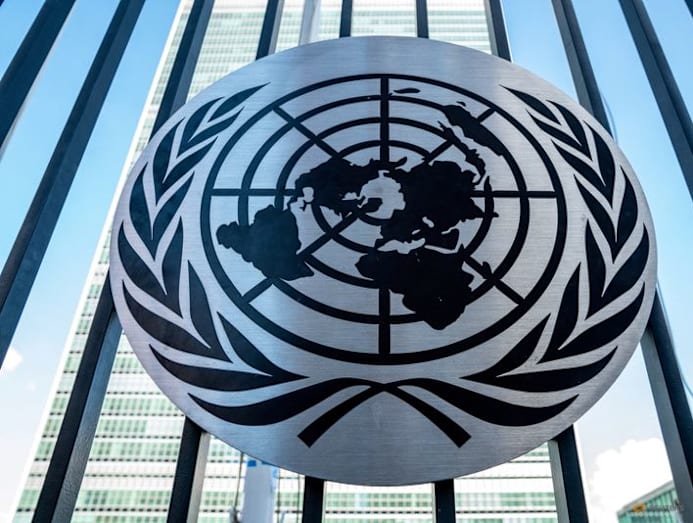
Beyond the Security Council, experts also called for streamlining the UN's sprawling bureaucracy and a "hard look at its machinery". They said reducing overlaps among its many agencies, commissions and programmes would help cut waste, ease funding shortages and restore trust in the organisation's effectiveness.
Thailand’s Mr Kasit noted significant overlaps between the International Organization for Migration, the UN High Commissioner for Refugees and other humanitarian bodies – suggesting they could be streamlined or amalgamated.
Finances must also be reviewed. Dr Karuppannan called it "troubling" that nearly two-thirds of the UN's peacekeeping missions are chronically underfunded.
"The organisation's humanitarian and development agencies also face the constant risk of being weakened by political pressure, since they rely heavily on voluntary contributions.
"When a major donor withholds funding to score political points – as we saw recently with the UN Relief and Works Agency – the victims are ordinary people who depend on UN support.
"What is needed is a financing system that is predictable, rules-based and insulated from political manipulation."
If left unreformed, experts warned, a weakened UN would compromise ASEAN's and the world's ability to address transboundary issues such as climate change, migration and security.
It would also erode the rules-based international order, leaving smaller states more vulnerable to external pressure, said Dr Domingo of the Philippines.
But how feasible are these reforms?
Mr Kausikan was blunt that the prospect of a UN Security Council reform is "zero or close to it" because one or more of the P5 will veto any move to dilute their powers.
He pointed to the Open-Ended Working Group on UNSC reform that has existed for almost 40 years with no progress made.
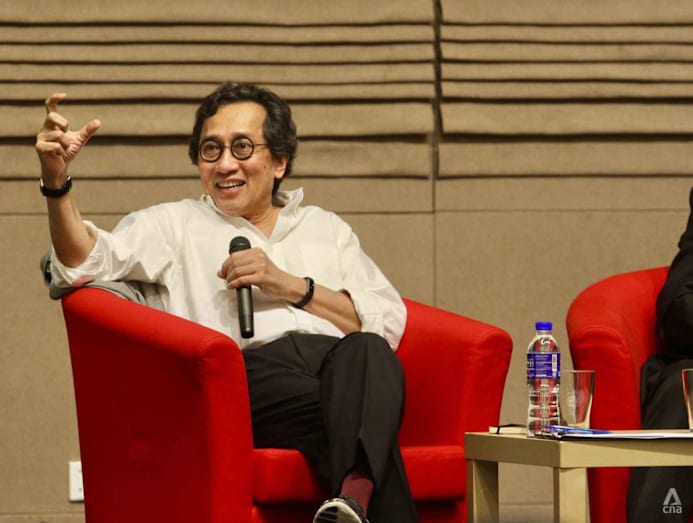
While experts agreed that while overnight sweeping reform was unlikely, momentum must be maintained. The UN must be nudged towards incremental change, they said, no matter how bleak the outlook.
In Dr Karuppannan's view, there is no doubt that the pressure for change is building.
He pointed to this year's General Assembly where more than 70 leaders from every region explicitly called for reforms to the Security Council.
"That level of consensus would have been unthinkable a decade ago," he said.
"Reform is a marathon, not a sprint. The danger is not that reform will be slow; it's that if countries give up pushing, the UN will decline irreversibly."
Prof Mahbubani said his "7-7-7" proposal is already being studied by the Quincy Institute in Washington DC, which has adapted it as part of its own recommendations for UN reform.
THE UN IS MORE THAN THE SECURITY COUNCIL
Despite the strong criticism, experts stressed that the UN is far from a failure.
Away from the spotlight, the organisation has made meaningful progress in key areas, from delivering humanitarian aid to driving landmark environmental accords such as the Montreal Protocol, Kyoto Protocol and Paris Agreement.
They also noted that despite its flaws, the UN has helped maintain relative global stability, with no conflict since World War II matching the scale of the two world wars.
Prof Mahbubani said that before the UN Charter, it was "perfectly normal and acceptable for great powers to invade and occupy small states".
"Now, there have been violations – lots of violations – but by and large, the rule of law that countries should not be invaded is observed globally."
Mr Kausikan agreed that the UN continues to serve an important purpose.
"When most people talk about the UN, they generally have the New York organs in mind – the political part of the UN embodied by the Security Council and General Assembly," he said. "But the UN is a system that is much larger than (that)."
Mr Kausikan pointed to key UN agencies based around the world which, though not immune to politics, continue to carry out vital work. These include the International Civil Aviation Organization (ICAO), the World Health Organization, UNICEF and UNESCO.
"Every time you take a flight, it is in no small part due to the ICAO that your flight arrives at its destination safely," he said.
Despite its shortcomings, the UN delivers "far more than many people realise", added RSIS' Dr Karuppannan.
Its humanitarian agencies feed over 100 million people a year through the World Food Programme while more than 70,000 peacekeepers help to stabilise fragile states.
He added that the UN has also guided dozens of states through independence and helped them rebuild after conflict.
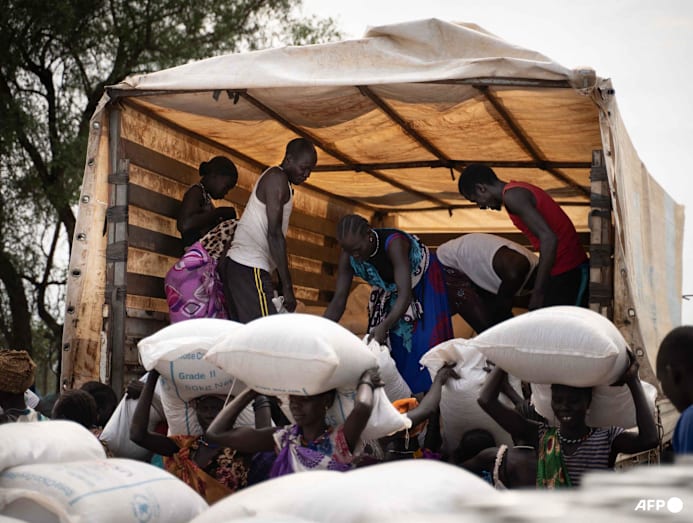
CRUCIAL FOR SMALLER AND MEDIUM-SIZED STATES
Beyond these successes, the UN's existence is also crucial for smaller and medium-sized states.
Prof Koh noted that the organisation gives small countries like Singapore a voice on the world stage and a platform to hold larger powers accountable.
"If the UN didn't exist, we would have to invent it, because it's a forum that enables small states to express their view, make their input, and influence outcomes," he said.
"If you didn't have the UN, the big countries would decide our fate – and we would be on their menu, not at the table."
Even if the UN cannot always prevent aggression, he added, it is better to have a space where smaller nations can speak up rather than none.
Prof Koh noted that even bigger and more powerful nations will have to depend on the UN when addressing transnational issues.
"You can't solve climate change without the cooperation of all the other countries in the world. You can't tackle pandemics by yourself no matter how powerful you are," he said.
RSIS' Dr Karuppannan agreed: "Without the UN, disputes would return to the law of the jungle, where the strongest impose their will and smaller states have little recourse."
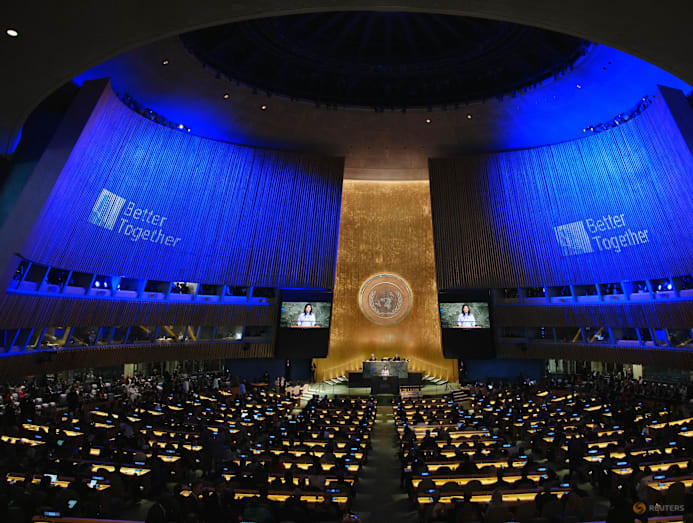
He added that for ASEAN nations, the UN Charter's principles of sovereignty, non-interference and peaceful dispute settlement remain vital amid rising great-power rivalry and maritime tensions.
"For ASEAN, a failed or paralysed UN would be a real disaster," he said, noting that Cambodia and Timor-Leste owe their independence and stability directly to UN involvement.
“The South China Sea disputes, the crisis in Myanmar, pandemics, human trafficking and climate change – none of these can be solved by one country alone."
"If the UN is too weak to play that role, ASEAN will be forced to deal with major powers one-on-one, on terms that are rarely favourable to smaller states. Preserving and reforming the UN is not a matter of choice; it is a matter of survival for small and medium-sized states."
Ultimately, while meaningful reform will take time, experts said there is still value in strengthening and preserving the UN – the only global multilateral organisation of its kind.
"We must be patient," said Prof Mahbubani. "Reform requires agreement among 193 countries. It takes time."
Dr Domingo added: "Like democracy, the UN may be disappointing – but it … still remains humanity's best platform to achieve global peace and prosperity."
Experts also noted that the UN is ultimately only one of many avenues available for diplomacy and conflict resolution for nations.
"The UN is only one tool in the toolbox of statecraft and not always the appropriate tool for every situation," said Mr Kausikan.
"It is not some kind of international Swiss Army Knife (for) every situation, crisis or challenge we face."
Ultimately, experts say global leaders – especially the P5 nations – must recognise that no country can stand alone, and that serving the global good ultimately serves their own interests too.
"The world has shrunk dramatically. We now live in a small global village. Each country is no longer a separate boat," said Prof Mahbubani.
"Each country is a cabin on the same boat – and frankly, there's no point taking care of your cabin if the boat is sinking."



















